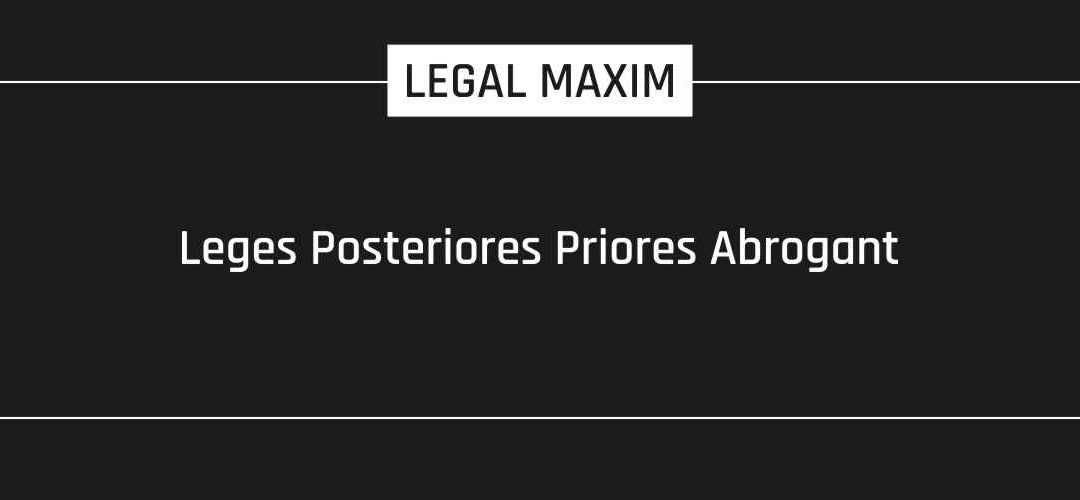Literal Meaning
Subsequent laws repeal prior conflicting ones
Origin
Latin
Explanation
This is also referred to as the doctrine of implied repeal which is a concept in the constitution where an act of Parliament conflicts with an earlier one, the later Act takes precedence and the conflicting parts of the earlier act become legally inoperable. In simple terms, a later statute which is repugnant to an earlier statute is deemed to abrogate the earlier one when both of them are on the same subject matter. In other words, where the provisions of a later document are contrary to those of an earlier, the earliest must be considered as repealed.
When two statutes conflict, the one enacted last prevails.
However, this principle is subject to an exception embodied in the maxim Generalia Specialibus Non-Derogant which means, a general provision does not derogate from a special one.
Case Law
In The Commissioner, Bangalore vs the State Of Karnataka And Anr., the Calcutta High Court held that “The principle Leges Posteriores Priores Abrogant is subject to the exception embodied in the maxim: (generalia specialibus non-derogant). This means that where the literal meaning of the general enactment covers an occupation for which specific provision is made by another enactment contained in an earlier Act, it is presumed that the situation was intended to continue to be dealt with by the specific provision rather than the later general one.”
In Municipal Committee, Malerkotla vs Mohd. Mushtaq, the Punjab and Haryana High Court held that “An earlier Act must give place to a later if the two cannot be reconciled and one Act may repeal another by words express or implied. It is also an equally well-known maxim of law which constitutes that the later laws prevail over those which preceded them.”
